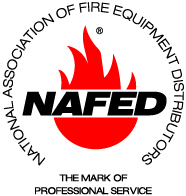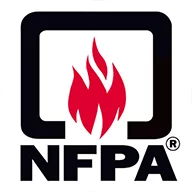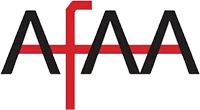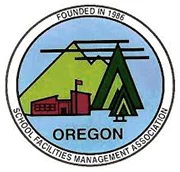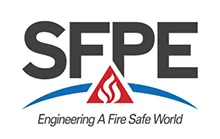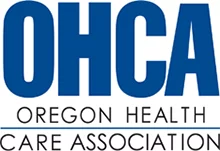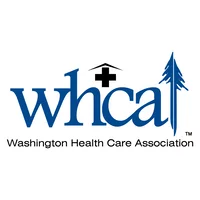Inspection
Repair
& Installation
Management
Consultation
Fire Sprinkler Systems Basics Q&A
 PSI recently held a webinar focused on an overview of today's fire sprinkler systems. Attendees left with a greater understanding of the basics of fire sprinkler systems and how fire/life safety codes impact sprinkler system requirements. If you weren't able to attend, you can still watch a recording of the Fire Sprinkler Systems Basics Webinar here.
PSI recently held a webinar focused on an overview of today's fire sprinkler systems. Attendees left with a greater understanding of the basics of fire sprinkler systems and how fire/life safety codes impact sprinkler system requirements. If you weren't able to attend, you can still watch a recording of the Fire Sprinkler Systems Basics Webinar here.
Several great questions were asked during the presentation, and we wanted to provide the answers for everyone to reference. Please find the Fire Sprinkler Systems Basics questions and answers below.
At PSI, our factory-trained and NICET-certified technicians provide comprehensive fire and life safety services—monitoring, testing and inspecting, system maintenance, installations, and code compliance consultations—all under one agreement. Contact us today to schedule your free consultation.
Can I perform my own Fire Watch?
In most instances, yes, you can perform your own fire watch. You'll want to talk to the AHJ (Authorities Having Jurisdiction) and ask for their specific requirements. Generally, Fire Watch requires a person to walk the affected areas every 15 minutes and document that Fire Watch. The person needs to be trained on what to do if there is an emergency or a fire, how to notify the authorities, and get the fire department or other emergency responders dispatched.
Can I repair my own fire sprinkler system?
In some instances, yes, you may be able to perform repairs to your fire sprinkler system. This is another area where you would want to contact the AHJ for clarification. Most owners don't want to take that liability themselves and prefer to use a licensed company. Often repairs will require a licensed inspector or fitter to return and verify the repair was completed properly. In this case, savings may not justify doing your own repairs. It's always a good idea to ask these questions prior to performing your own repair.
How do the sprinkler heads go off? Is it when the bulb breaks or is it the type of head that determines when it goes off?
The sprinkler head activates when the bulb or fusible element breaks. This happens when the temperature-sensing element reaches its fusing temperature. The most common sprinkler heads fuse at 155° to 165° allowing the plug to fall out and discharge water.
What happens if my air compressor fails?
In the case of a dry system, it will eventually lose pressure and the valve will trip introducing water into the piping. When you get a low air alarm, you should investigate what's happening with the system. Often the compressor has failed, or the system has developed leaks that must be addressed.
In the case of a pre-action system, if your compressor fails, you'll get a supervisory alarm. Most Preaction systems will not trip unless activated by a smoke detector or other detection device. Just like Dry systems low air alarms should be investigated and repaired as soon as possible.
Has the code yet adopted a sampling percentage of concealed plates needing removal for visual inspections? And how often do those revision cycles happen?
They have not. I believe that's coming in the next revision cycle, The revision cycle typically happens every three years.
Do all testing increments apply to all states?
Not all—it's based on the adopted standard. Our California customers are on the 2013 California edition. California is kind of special—they have their own edition of NFPA 25. In Oregon and Washington, we've currently adopted the 2020 edition of NFPA 25 so some requirements will vary based on jurisdiction.
What happens if the fire sprinkler head fails its test?
If a fire sprinkler head fails its test, all the sprinkler heads must be replaced in the area represented by that test. When we perform sample testing, we like to have a conversation with the customer about dividing the building up into sample areas.
If you have sections of your building where sprinklers are exposed to weather, chemicals, or other environments where sprinklers are more likely to fail they can be identified as individual sample areas. Sampling in multiple areas can lessen the odds of 1 sprinkler from a particular area making it necessary to replace all sprinkler heads. You can break up your building into as many areas or sections as you'd like for sample testing.
Is it best practice to supply photos of where the pipe was opened on the 5-year inspection?
It is. Photos are not required but it's a good visual especially if we find issues inside of that piping. We take pictures of the interior of the piping anytime we open it up for inspection. If you want to make sure you get photos, ask your contractor to provide them prior to inspection. Our practice at PSI is to supply photos whenever we open piping.
Can sprinkler heads not be called out one year but then called out the next?
That can happen occasionally. Sometimes technicians don't see sprinkler heads that are corroded or perhaps painters visit within that year, movers bump a sprinkler head with a piece of furniture, etc. Sprinkler heads can easily get damaged in several different ways.
Can sprinkler heads be replaced by anyone?
Generally, it's best to have a professional replace sprinkler heads. As the owner of the system, sometimes you are allowed to replace your own sprinkler heads. Check with your AHJ to see if its allowed. If you do decide to change your own, make sure that you're installing the right sprinkler head There are a lot of sprinkler heads that will fit in the piping threads but just because a sprinkler head fits doesn't mean that it's the correct sprinkler head made for that area or purpose.
How are the concealed sprinkler heads checked yearly if they're concealed?
Currently, concealed sprinkler heads are only required to be inspected from ground level. I believe that may be revised in the next edition of the standard to require a certain percentage of sprinkler head covers be removed and those sprinkler heads inspected.
Typically, we don't see too many problems with the heads underneath the covers. The cover keeps them dry and clean, and they're not exposed to painters for the most part. Currently, we just inspecting the cover for issues that could hinder performance.
With regards to valves in confined space vaults, what compliance is required?
With a confined space vault, your contractor needs to comply with OSHA requirements to monitor the air in that space and make sure it's safe and well-ventilated.
If the space can't be ventilated, and made safe additional precautions and safety gear beyond monitoring the atmosphere is required.
When should I call for service? What should I do if the sprinkler system is going off?
If your sprinkler system's going off, you first want to verify that everybody is evacuated and the fire dept is responding. Generally, the fire department is the first to respond and can shut the system off for you once confirmed the fire is out.
You will want to call your service provider as soon as you've made sure that the building is safe and that everybody's been evacuated before turning that sprinkler system off. Never shut off the system unless you are sure there is no fire.
What are some common items missed during annual inspections that we should pay attention to while the contracted company is inspecting?
Common items that are sometimes missed are sprinkler heads with issues, damaged, painted, corroded, etc. If inspectors can't get into portions of a site items can be missed. It's important to let your contractor get into all areas for inspections.
During fire sprinkler system inspections in an apartment complex, do the technicians need access to every unit?
Yes. Inspections in an apartment complex are not only for the fire sprinkler system but oftentimes for alarm testing as well. If you've got audible devices in those apartments, those need to be tested along with the sprinklers required to be visually inspected.
Tenants should be notified by the owner about planned inspections. Its very important to inspect units tenants will often stack boxes or other obstructions right up to the sprinkler head. Sometimes our inspections in units reveal quite a fire load actually obstructing the fire sprinklers.
It's also necessary to have access to elevators for inspections. If you have elevators in your building, you will need to have your elevator technician there at the same time so sprinklers and detectors at the top of the shaft or in the pit can be inspected safely.
We hope you have found this Q&A helpful. Don't forget to check out the recording of the Fire Sprinkler Systems Basics Webinar here for more important information on fire sprinkler systems. At PSI, our NICET-certified technicians provide services considered by our customers to be best in class. Contact us today for a free consultation on your fire and life safety systems.









